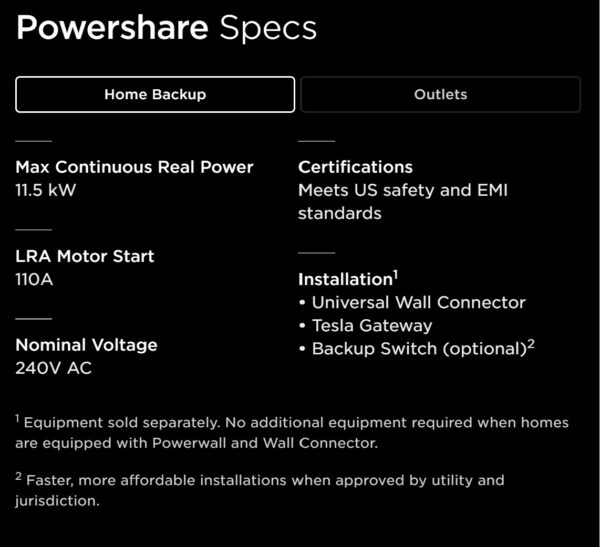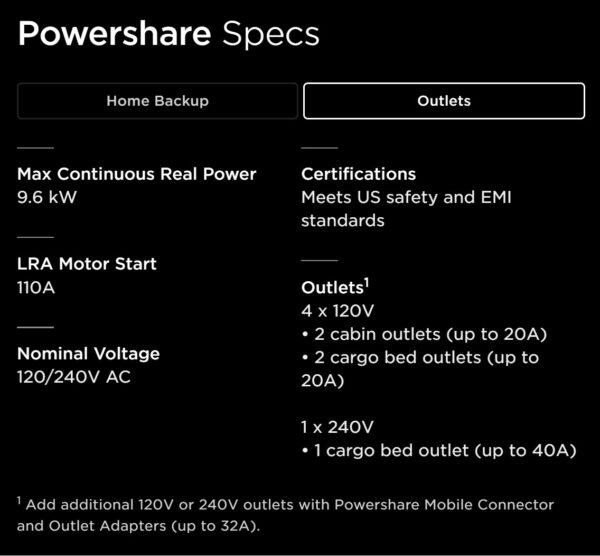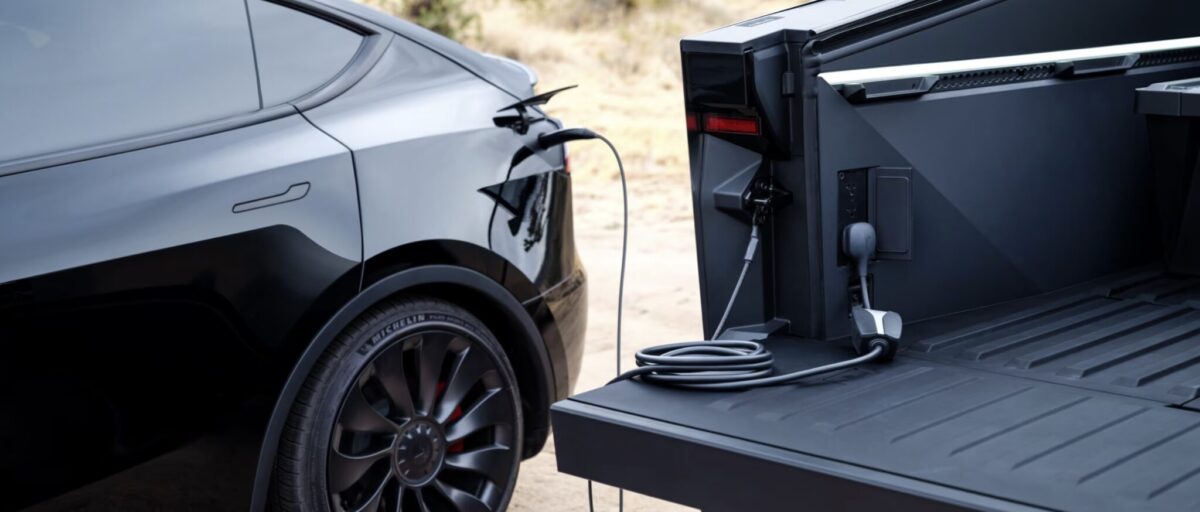From pv magazine USA
USA’s leading EV manufacturer, Tesla’s newly released Cybertruck features vehicle-to-load (V2L) and vehicle-to-home (V2H) capabilities, branded as Powershare.
Although Tesla’s website does not specifically state that the vehicle includes vehicle-to-grid (V2G) capabilities, it connects to the home using either a Powerwall or the Tesla Gateway. In turn, the Powerwall offers V2G capabilities and virtual power plant participation via the Gateway.
Powershare offers two sets of specifications: one for powering a home and another for supplying power to five individual outlets.

The home backup specifications feature an 11.5 kW max continuous power output at 240 volts, aligning with the company’s upcoming Powerwall 3 and solar inverter, introduced at RE+ in September.
Some additional hardware is required to utilize the V2H feature. The Universal Wall Connector, likely on many Cybertruck buyers’ wish lists already, is priced at $595. Additionally, the Tesla Gateway, essential for integrating standard Powerwall or solar installations, costs $1,800. Tesla also recommends the optional Backup Switch, known for streamlining the installation and potentially reducing overall costs. However, the price of this switch varies with different installation requirements and is not uniformly listed.
Tesla indicates that existing Powerwall owners won’t need extra hardware to enable the V2H feature.

The vehicle is equipped with five outlets: four standard 120V wall plugs – two in the cabin and two in the cargo bed – and a high-voltage 240V plug, capable of charging another Tesla, as depicted in the featured image.
In total, these five outlets offer 9.6 kW of power.
Tesla asserts that the vehicle can supply a minimum of 30 kWh to a home over a 24-hour period, matching the average daily energy usage of an American household.
The Cybertruck will also offer an optional removable range-extending battery box, designed to be installed in the truck’s bed, adding approximately 120 to 130 miles of additional range. Reflecting figures from Car and Driver, and other sources, we estimate Cybertruck’s efficiency to be between 2.33 and 2.5 miles per kWh. This efficiency estimate suggests that the capacity of the range extender is likely between 48 to 56 kWh.
While the official price for this accessory has yet to be announced, a Twitter user’s exploration of Tesla’s website code suggests the hardware might be priced at $16,000.
For comparison, the Tesla Powerwall, which provides 13.5 kWh of storage capacity, is priced at $8,401.
This content is protected by copyright and may not be reused. If you want to cooperate with us and would like to reuse some of our content, please contact: editors@pv-magazine.com.








By submitting this form you agree to pv magazine using your data for the purposes of publishing your comment.
Your personal data will only be disclosed or otherwise transmitted to third parties for the purposes of spam filtering or if this is necessary for technical maintenance of the website. Any other transfer to third parties will not take place unless this is justified on the basis of applicable data protection regulations or if pv magazine is legally obliged to do so.
You may revoke this consent at any time with effect for the future, in which case your personal data will be deleted immediately. Otherwise, your data will be deleted if pv magazine has processed your request or the purpose of data storage is fulfilled.
Further information on data privacy can be found in our Data Protection Policy.